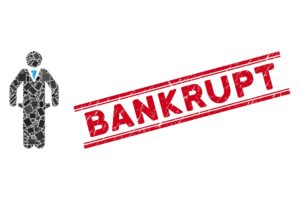In mid-April 2020, the Federal and Provincial governments partnered to introduce the Emergency Commercial Rent Assistance Program (CECRA). The program was meant to steady a commercial real estate market that was destabilized due to the COVID-19 pandemic. We blogged about the rent relief program, its intended application, and its perceived shortcomings here.
The level of participation in the CECRA was underwhelming. This was not entirely unexpected and, as we predicted, many Landlords balked at the idea of offering their Tenants any concessions on the amount of monthly rent payable.
In one of his daily press briefings, on May 19, 2020, Ontario Premier Doug Ford urged Landlords to apply for the CECRA and warned “greedy Landlords” to “work things out” or risk forcing the government to “come down on those who don’t.” Apparently the Premier’s stern warnings weren’t sufficient to persuade enough Landlords to avail themselves of the CECRA. Therefore, and as promised, Premier Ford’s government took action to steady the economy and support small businesses by enacting the aptly-named Protecting Small Business Act, 2020 (the “Act”).
The Act amends the Commercial Tenancies Act by prohibiting Landlords who are eligible to apply for the CECRA from evicting Tenants for non-payment of rent. The Act defines the term “non-enforcement period” as the period commencing on June 18, 2020 and terminating on an as yet to be determined future date. During the “non-enforcement period” the Act:
(a) prohibits Judges from ordering a writ of possession if the basis for ordering the writ is an arrears of rent. This restriction applies with respect to legal proceedings that were commenced before, on, or after the non-enforcement period;
(b) prohibits Landlords from exercising a right of re-entry and from seizing any of the Tenant`s assets as distress for arrears of rent;
(d) requires Landlords who exercised a right of re-entry between May 1, 2020 and June 18, 2020 to: (i) restore possession of the premises, unless the Tenant declines; or (ii) if the Tenant did not decline but the Landlord is unable to restore possession for another reason, compensate the Tenant for all damages sustained; and
(e) requires Landlords who exercised distress for arrears of rent between May 1, 2020 and June 18, 2020 to return to the Tenant all of the unsold goods and chattels.
The Act will likely have Premier Ford’s desired outcome and lead to an increase in the number of Landlord’s applying for CECRA. However, it remains to be seen whether a Tenant whose Landlord does not apply for CECRA will eventually be required to pay all of their rental arrears and, in those instances, when the arrears will become due and payable. It should also be noted that the Act does not relieve against non-monetary defaults; so a Tenant who is required to keep the Leased Premises in a certain state of repair, can’t rely on the Act to neglect its obligation to do so.
The fallout of the COVID-19 pandemic continues to strain Landlord and Tenant relations and the Protecting Small Business Act is yet another law that Landlords and Tenants need to be aware of and understand. As lawyers with experience dealing with commercial lease disputes, we can help.


